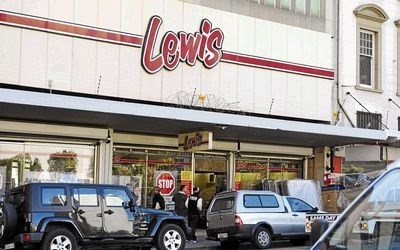
Top stories






More news













Logistics & Transport
Uganda plans new rail link to Tanzania for mineral export boost












On Thursday, Lewis’s share price closed just 2.33% weaker at R41.52 after the company issued a Sens statement at lunchtime informing shareholders of the tribunal’s ruling. But, with the tribunal considering a second referral against Lewis, shareholder sentiment may buckle.
In its first substantial ruling against a listed company, the tribunal found this week that the National Credit Regulator’s investigation and complaint against Lewis was valid.
The complaint, which related to the sales of insurance against loss of employment and disability, had been referred to the tribunal in July 2015.
Lewis challenged the validity of the referral throughout the process, causing the hearing to be delayed until 28 July.
The tribunal ordered an independent audit of all of the credit agreements entered into by Lewis since 2007 to determine how many pensioners or self-employed consumers were sold loss-of-employment insurance and how many pensioners were sold disability insurance.
The furniture retailer must reimburse such customers with any premiums and interest charged on their accounts. Customers who no longer have open accounts with Lewis are to be traced and reimbursed.
The independent audit, to be paid for by Lewis, has to be completed within 120 days and the audit report is to be given to the National Credit Regulator within 150 days.
On Thursday, Lewis reminded shareholders that its own investigation had found that about 44,000 customers had been sold the insurance involving R67m.
Jacqueline Boucher, the manager of investigations and enforcement at the credit regulator, said on Thursday the regulator was aware of Lewis’s investigation, but that it needed an independent audit. She also noted the audit would include the sale of disability insurance to pensioners.
Industry sources said the mechanics of the independent investigation would be daunting as the auditors had to mine huge volumes of information.
Retail analyst Syd Vianello said as long as investors believed Lewis would maintain its generous dividend payments the Lewis share price would probably hold where it was. Lewis and other credit retailers would look to other sources of income if the regulators banned income-generating activity that contravened regulations, he said.
"As in any business, companies are looking to earn a certain level of income, whether it’s from insurance premiums, club membership or extended warranties, if one component is put under pressure they will look to another," said Vianello.
Lewis is one of the last big furniture retailers to still sell on credit. "Most are shifting to a cash model," said Vianello, as the cost of providing 36 months of unsecured credit was steep.
Lewis’s problems with the tribunal look set to continue for at least several months. The tribunal has just closed pleadings on a second referral by the credit regulator, which relates to Lewis charging customers for extended warranties and club fees. A hearing date has not yet been set for that referral.

For more than two decades, I-Net Bridge has been one of South Africa’s preferred electronic providers of innovative solutions, data of the highest calibre, reliable platforms and excellent supporting systems. Our products include workstations, web applications and data feeds packaged with in-depth news and powerful analytical tools empowering clients to make meaningful decisions.
We pride ourselves on our wide variety of in-house skills, encompassing multiple platforms and applications. These skills enable us to not only function as a first class facility, but also design, implement and support all our client needs at a level that confirms I-Net Bridge a leader in its field.
Go to: http://www.inet.co.za